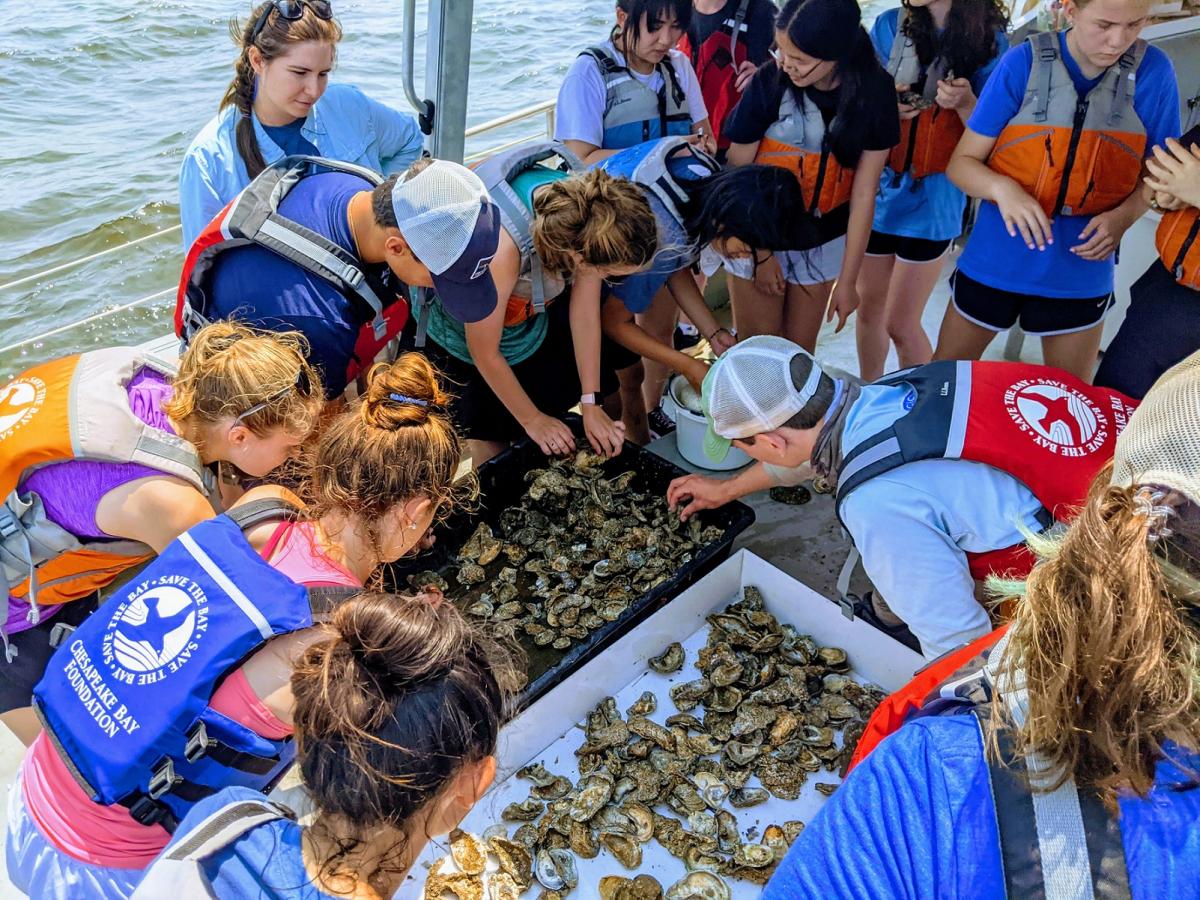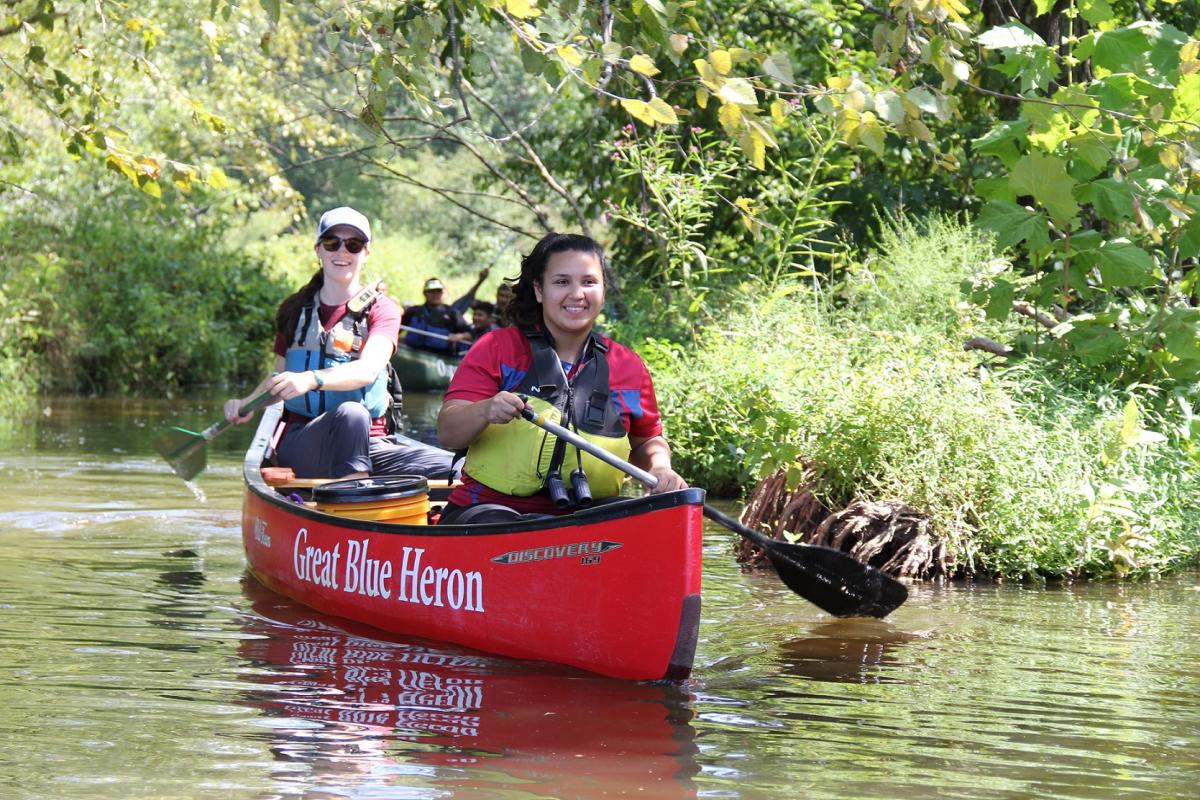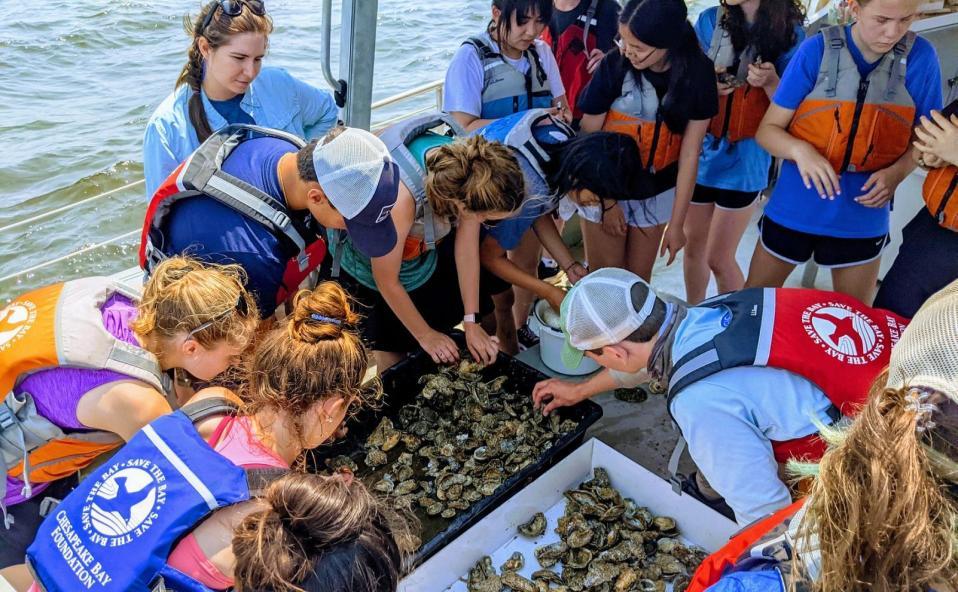
Photo credit: CBF
Chesapeake Bay Foundation (CBF) educators are excited to welcome teachers and students back to outdoor education programs this fall. The outdoor class program was suspended in March 2020 when the pandemic began.
Since the early 1970s, CBF’s award-winning outdoor education program has guided over one million students from Chesapeake Bay watershed schools to forests, rivers, and on the Bay to teach them about the nation’s largest estuary.
“Our education program’s mantra has always been to ‘learn outside,’ so we’re thrilled to get back on the Bay as well as the watershed’s rivers and trails to teach, learn, and explore with students in person,” said Tom Ackerman, CBF’s Vice President of Education. “We are eager to make up for the opportunities students have missed with us during the last 18 months. However, our priority has always been the health of our participants.”
CBF is taking several steps to protect the health of students and educators as outdoor education programs resume this fall for the first time since the pandemic began.

Photo credit: CBF
This year’s outdoor programs will be different than in previous years due to pandemic precautions. All day trip activities will take place outdoors, where studies have shown the risk of transmitting Covid-19 is much lower compared to indoor activities. Students will be required to undergo a health check 24 hours before attending a day program and wear masks when social distancing isn’t possible, such as on boats. To protect their own health and the health of others, All CBF educators have been vaccinated.
For residential programs, when students stay overnight at CBF facilities such as Smith Islandor the Karen Noonan Center on the Eastern Shore, students and other participants must be vaccinated. At the residential centers, participants will also be required to wear masks when indoors, with exceptions made for eating and sleeping.
In Maryland, CBF provides day trip education programs at the Phillip Merrill Environmental Center and Arthur Sherwood facility in Annapolis as well as out of the Baltimore Harbor. Schools in the Washington, D.C., area have the option of joining the Potomac River program in the nation’s capital.
On these experiences, students perform water quality tests, trawl for fish, examine plankton, and learn about the history and ecology of the Bay, its tributaries, and watershed. Participation in a CBF meaningful watershed educational experience is an important part of schools’ environmental literacy programs.
Studies of outdoor education classes have found students are more engaged and develop important skills such as perseverance, self-efficacy, and leadership through their participation. Students report after learning outside they feel more confident and connected to nature.
Teachers interested in signing their class up for a fall program can visit CBF’s education website to do so. This year’s fall field experiences will take place from late September through early December. Teachers can choose from canoe, boat, or land-based experiences.



Write a Letter to the Editor on this Article
We encourage readers to offer their point of view on this article by submitting the following form. Editing is sometimes necessary and is done at the discretion of the editorial staff.